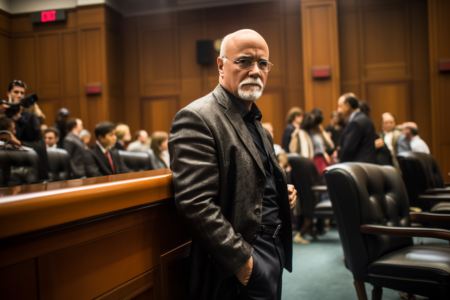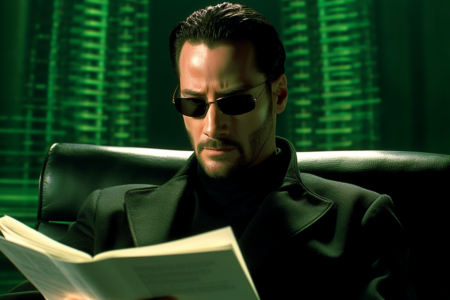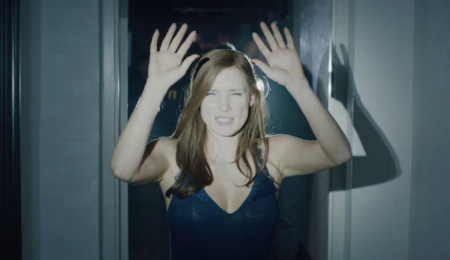In a historic move that has sent shockwaves through the entertainment industry, the leaders of the Hollywood union SAG-AFTRA, representing 160,000 television and movie actors, have voted in favor of a strike. This momentous decision comes in the wake of ongoing labor disputes, with screenwriters already having been picketing for over 70 days. As the industry braces itself for the largest walkout in four decades, the implications for the future of Hollywood and the wider entertainment landscape are profound.
In this speech, Fran Drescher, the President of SAG-AFTRA, speaks passionately about the ongoing strike. She emphasizes the importance of this negotiation not just for the entertainment industry but for all fields of labor. Drescher expresses her shock and disappointment at the treatment they have received from the employers, who prioritize Wall Street and greed over the essential contributors to the industry. She highlights the unity and solidarity among unions and emphasizes the need to stand tall and demand respect for their contributions.
The Rise of Collective Action
The combined strikes of both actors and screenwriters have brought Hollywood to a standstill, halting the $134 billion American movie and television business. This industrywide shutdown, the first in 63 years, highlights the growing power and solidarity among industry professionals who are united in their demand for fair pay and concerns about the increasing influence of technology on their livelihoods.
The Root of the Conflict
The strike was initiated after negotiations between the SAG-AFTRA union and studios broke down over a new contract. The central points of contention revolve around fair compensation and the encroaching presence of streaming services and artificial intelligence (AI) in the industry. These concerns reflect a broader debate about the future of entertainment and the need to protect the rights and livelihoods of those who bring our favorite shows and movies to life.
The Impact on Productions
As the strike takes effect, the consequences are already being felt across the industry. The promotion of summer blockbusters, which heavily rely on the star power of actors, has been dampened. Notably, the cast of the film “Oppenheimer” left its London premiere in solidarity with their fellow actors, emphasizing the unity among industry professionals in the face of this labor battle.
Reflections on Past Strikes
The last major walkout by Hollywood actors took place over 40 years ago in 1980. The fear at that time stemmed from the advent of pay television and other emerging “home video technologies.” This strike disrupted productions and forced studios to confront the changing landscape of the entertainment industry. Today, history repeats itself as actors once again take a stand against new challenges posed by streaming services and the ever-expanding reach of AI.

Restrictions on Actors During the Strike
With the strike officially underway, SAG-AFTRA has imposed a range of restrictions on its members. These prohibitions extend beyond acting in films and encompass activities such as promoting movies at premieres and engaging in on-camera work. These measures serve to strengthen the impact of the strike and highlight the resolve of actors to secure fair working conditions.
Voices of Union Leaders
Union leaders have been vocal in expressing their grievances and advocating for the rights of actors. Fran Drescher, the president of SAG-AFTRA, spoke passionately about the treatment of union members by Hollywood studios, emphasizing the need for respect and fairness. Their statements shed light on the deep-rooted frustrations and concerns that have culminated in this decisive strike.
Studios Respond to the Strike
Hollywood studios are now confronted with what they consider to be a crisis moment for their business. The impact of the strike on their operations, profit margins, and share prices cannot be underestimated. With viewership shifting towards streaming platforms and traditional models of entertainment facing disruption, studios are forced to reckon with the demands of the striking actors and the broader changes sweeping the industry.
Unity Among Entertainment Professionals
While the strike by actors and screenwriters is not directly connected, both unions share many common concerns and goals. Higher wages increased residual payments, and protections against the use of AI are among the issues that have driven both groups to take collective action. The unity between these unions in the past has yielded significant gains, such as residuals and pension and health funds, and they now stand together in pursuit of further progress.
Implications for Viewers
The strike’s impact will not be limited to the industry alone; viewers will also be affected. With late-night shows and other popular programs already disrupted by the writers’ strike, the addition of actors to the walkout will have a more pronounced impact on the availability of new episodes and content. As the strike progresses, audiences can expect to experience the effects of this labor dispute more broadly in the coming months.
Conclusion
The Hollywood actors’ strike marks a turning point in the entertainment industry, as actors and screenwriters come together to demand fair treatment and address the challenges posed by technology and evolving business models. This unified front represents a pivotal moment in the fight for equitable compensation and recognition of the essential contributions made by those who bring our favorite stories to life. As the strike takes hold, the future of Hollywood hangs in the balance, and the industry is forced to reckon with the demands of its most influential and vital players.







